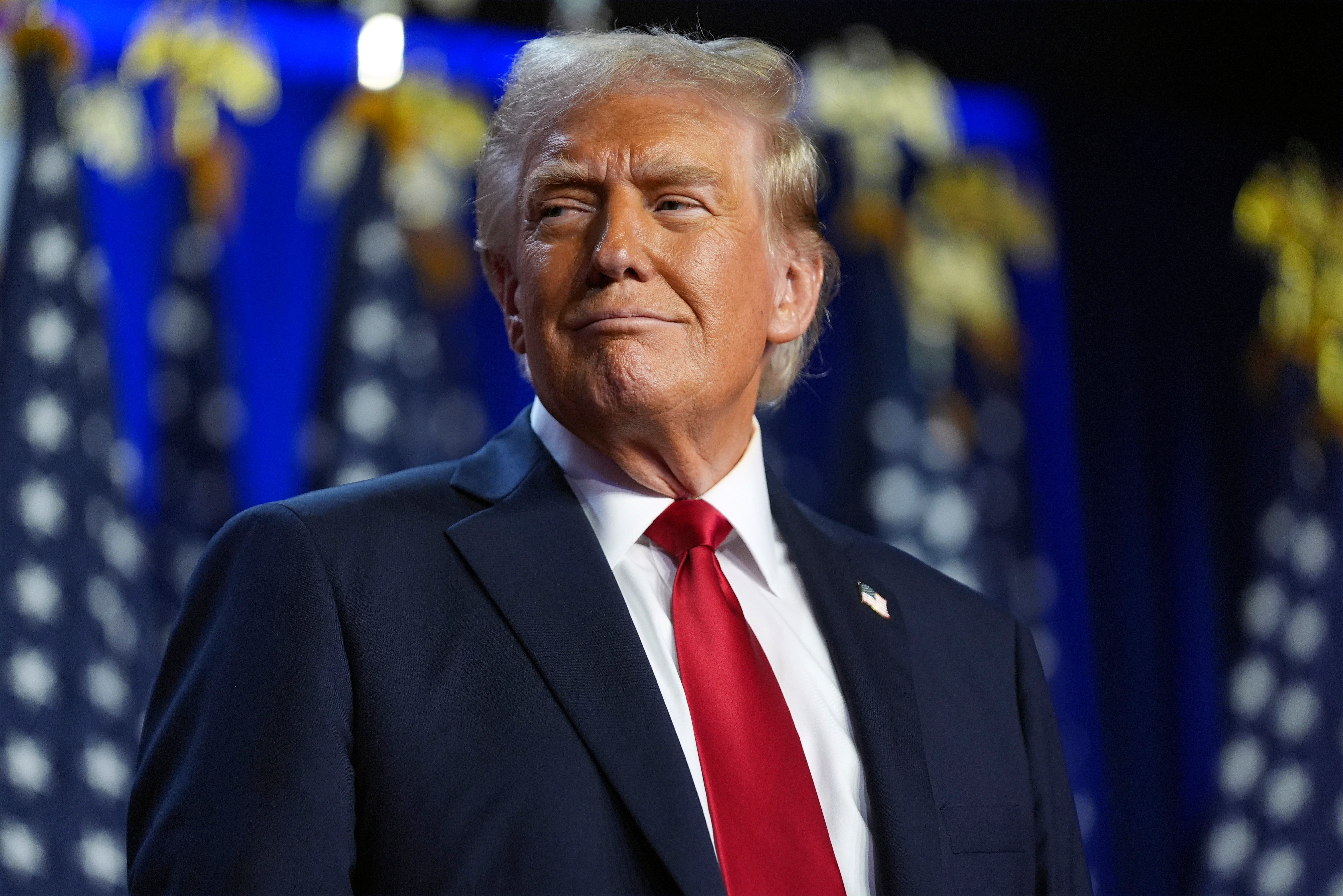The South Korean 4B movement has seen a spike in interest amid the results from the 2024 US presidential election.
On Wednesday (November 6) morning, Republican candidate Donald Trump claimed victory over Vice President Kamala Harris. Throughout his 2024 reelection campaign, the former president has celebrated the Supreme Court’s 2022 decision to overturn Roe v Wade, a ruling that ended a nationwide right to abortion. It was also reproductive rights that propelled many women to the polls on Election Day as Missouri became the first state to undo a restrictive abortion ban.
However, after Trump declared victory over Democratic nominee Harris, some Americans couldn’t help but say they felt reaffirmed in their belief that most of the United States would rather anyone else as president than a woman. Perhaps that’s why interest in South Korea’s 4B movement – a movement against patriarchy – has spiked in the US just hours after Trump’s win.
“American women, looks like it’s time to get influenced by Korea’s 4B movement,” one woman wrote on X/Twitter.
“American women, it’s time to learn from the Koreans and adopt the 4B movement,” another user echoed, while a third person said: “The women in South Korea are doing it. It’s time we join them. Men will NOT be rewarded, nor have access to our bodies.”
The 4B movement, which reportedly originated in 2019, stands for four Korean words beginning with “bi” or “no” in English: bihon means no heterosexual marriage; bichulsan, no childbirth; biyeonae, no dating; and bisekseu, no heterosexual sexual relationships. Supporters of the women-led movement refuse to date, marry, have sex or have children with men – effectively boycotting a system they feel perpetuates gender inequity.
Members of the 4B movement view marriage as an existential threat to women, and their concerns are well-founded. Much like in the US, South Korean women are also subjected to a gender pay gap. While American women typically earn 82 cents for every dollar earned by men, South Korean women earn 31 percent less than men – the highest gender pay gap in democratic countries. A 2018 report revealed that in the past nine years, at least 824 women had been killed and 602 more put at risk of death due to intimate partner violence (IPV). A 2021 study further found that one in three Korean women have experienced domestic violence, with intimate partners responsible for 46 percent of these cases.

In response, women within the 4B movement have chosen to disengage from traditional relationships altogether, asserting that practicing “bihon” is the only path to autonomy. “Practicing bihon means you’re eliminating the risks that come from heterosexual marriage or dating,” Busan native Yeowon explained to The Cut.
It’s unclear how widespread the 4B movement is given its largely anonymous and offline nature, and it’s origins are just as nebulous. However, scholars credit its rise with the growing education gap between men and women in South Korea. Similar to the gender education gap in the US, in which women make up 59.5 percent of all college students, Korean women surpassed men in college enrollment rates as of 2013. Today, nearly three-fourths of Korean women pursue higher education, compared with less than two-thirds of men.
This shift fueled growing tension between men and women, with disgruntled groups of men coining the term “kimchinyeo,” or “kimchee women,” to stereotype college-educated women as “selfish, vain, and exploitative of their partners,” feminist scholar Euisol Jeong explained in her research on “troll feminism.”
These cultural attitudes echo trends in the US, where men are grappling with shifting gender roles. Feeling the pressure of fewer blue-collar jobs and diminishing educational advantages, many men are drawn to vote for conservative candidates like Trump, who promise a return to traditional values that, for some, prioritize men’s interests at the expense of women’s autonomy.
“Masculinity is in flux,” anthropologist Treena Orchard recently told The Independent in an interview about the gender political gap. “Men are feeling constrained, and it’s like they might feel like they have fewer options in terms of how to do manhood, how to think about their place in the world, and they feel devalued.”
For many women in South Korea, the 4B movement isn’t merely symbolic – it’s a social stance aimed at reclaiming control over their lives, bodies, and futures in response to a system they feel is becoming increasingly hostile.
In the wake of the election – which has seen women’s rights, such as reproductive autonomy, under threat – bringing the 4B movement to the US could be a radical response. However, the surge of American interest in the 4B movement underscores a shared frustration over what many see as a rollback of women’s rights and freedoms, especially as conservative values gain ground among male voters.
With the movement gaining momentum online, one question looms: Will American women rally around it, or perhaps create their own version, as a form of protest against Trump’s second presidential term in the White House?













